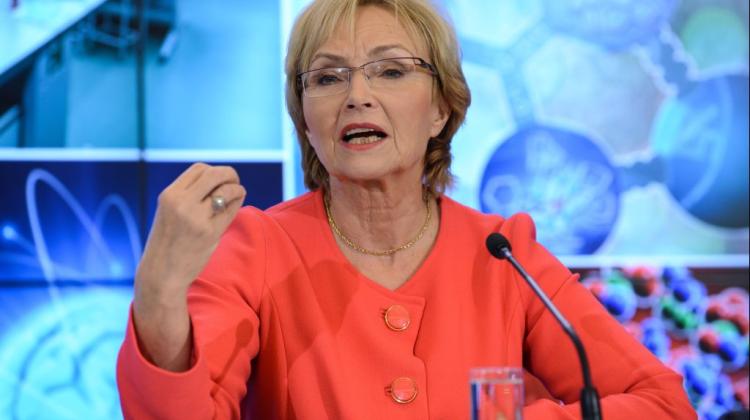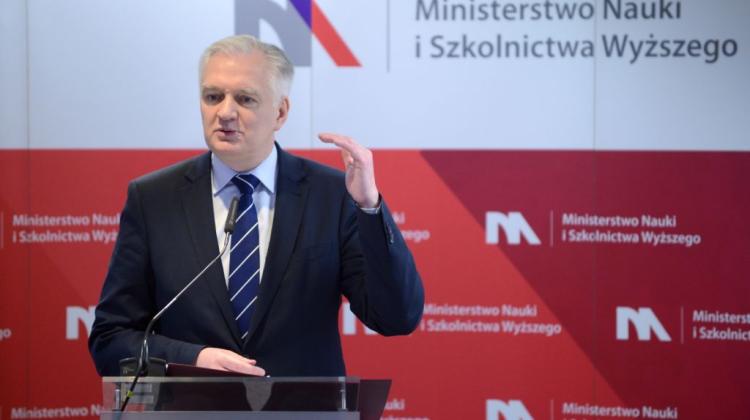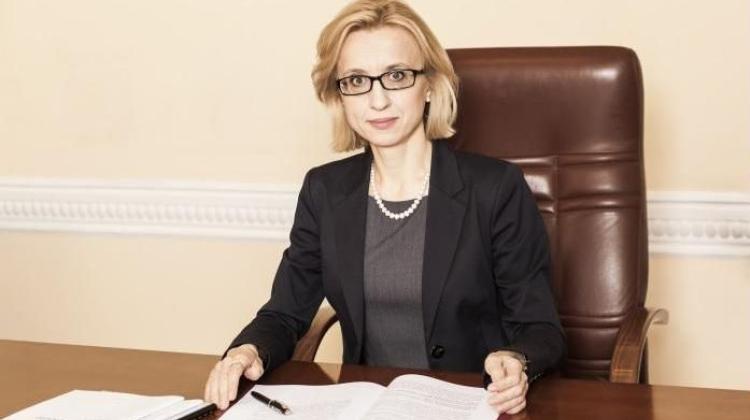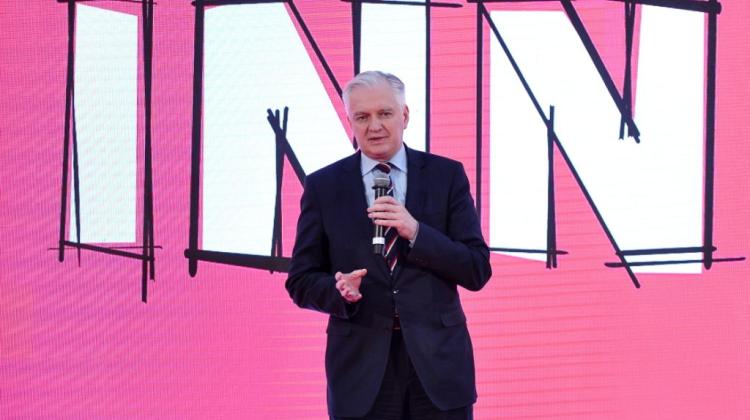Minister of Science: it is worth it to be a scientist

On why it is worth it to be a scientist and that without science Poland will not enter the next level of development, spoke Minister of Science Lena Kolarska-Bobińska at a meeting with young scientists during the inauguration of the campaign "Occupation: Scientist".
"It is worth it to be a scientist, because the scientist discovers new areas of thinking, new ideas; it is a person who feels that he is doing great things, but also satisfies his own curiosity" - Minister of Science and Higher Education Lena Kolarska-Bobińska told reporters.
During the meeting with young researchers she explained that the objective of the campaign "Occupation: Scientist" launched by the Ministry of Science is to convince young people that it is worth it to work in science, at universities, and that being a researcher is extremely exciting. Ministry of Science wants this campaign to draw attention to the fact that science must be the engine of development of Poland. "We have to convince politicians, entrepreneurs, that without science Poland will not enter the next level of development" - the minister said during the meeting. She added that science is at the centre of all the major processes in the country and that only those countries where science is in the centre of the discourse, go forward.
"Science must come out of its stronghold and we have to help " - said Kolarska-Bobińska. She noted that the popularisation of science "is not talking about trivial matters, it is not a getting to the basic level, as is often believed, but it is gaining the support of public opinion for science".
During the panel about the future of Polish science, Polish FameLab 2012 laureate Monika Koperska from the Jagiellonian University also reminded how important it is to talk about science in simple language. She encouraged researchers to talk about their research in an uncomplicated way, also to other researchers specializing in different fields. In her view, science is becoming increasingly specialized and closed in narrow areas, and the fact that scientists do not understand what their colleagues are doing, does not have a good effect on interdisciplinary research.
In turn, Dr. Magdalena King of SGGW-WULS in Warsaw emphasized the importance of trips abroad in the development of a scientist. In her opinion, the brightest should be vigorously encouraged to travel for foreign research units, receive education there and then return to Poland.
Dr. Maciej Wojtkowski from the Nicolaus Copernicus University in Toruń noted that universities usually have two separate realities: one is the reality of teaching - including lectures and classes with students - and the other is the scientific reality - things that happen in laboratories. In his opinion, it is worth to combine these two spheres: for example, educating students by involving them in intensive research turns out to be very effective.
During ceremony on October 11, the Ministry of Science awarded "Diamond Grants" for outstanding students who already carry out their own research. Also honoured were the winners of the "Generation of the Future" - young designers and developers who represent Poland in international competitions. "They are in the forefront of young science in Poland" - Minister of Science said about the researchers gathered in the room.
"If every year two hundred people win Diamond Grants and Generation of the Future, there will be a few thousand of you in several years. A few thousand is already a critical mass to breathe a new spirit in Polish science and higher education"- noted the Minister of Science.
PAP - Science and Scholarship in Poland
lt/ mow/ mrt/
tr. RL
Przed dodaniem komentarza prosimy o zapoznanie z Regulaminem forum serwisu Nauka w Polsce.


















